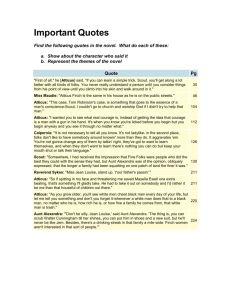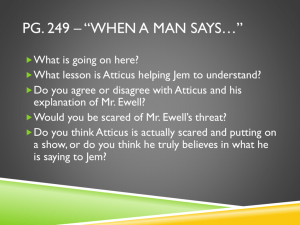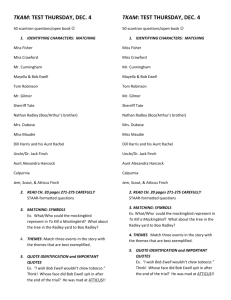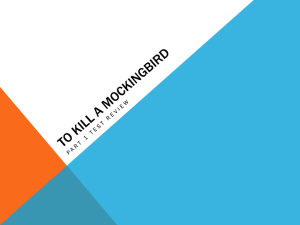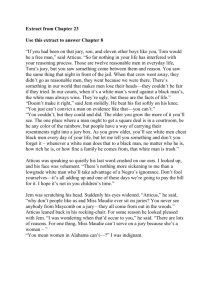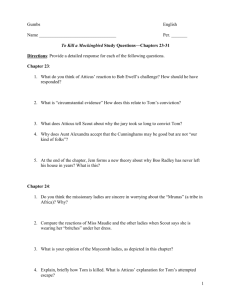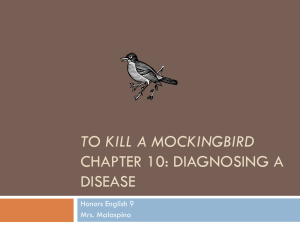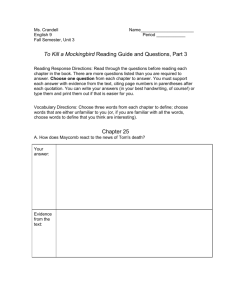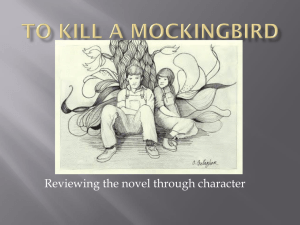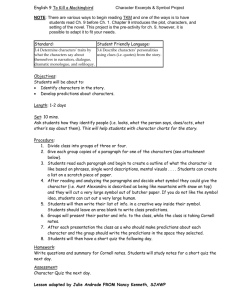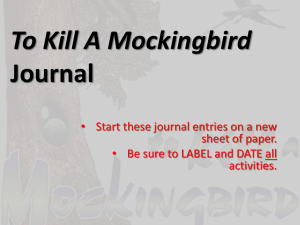To Kill a Mockingbird Study Guide: Chapters 22-31
advertisement
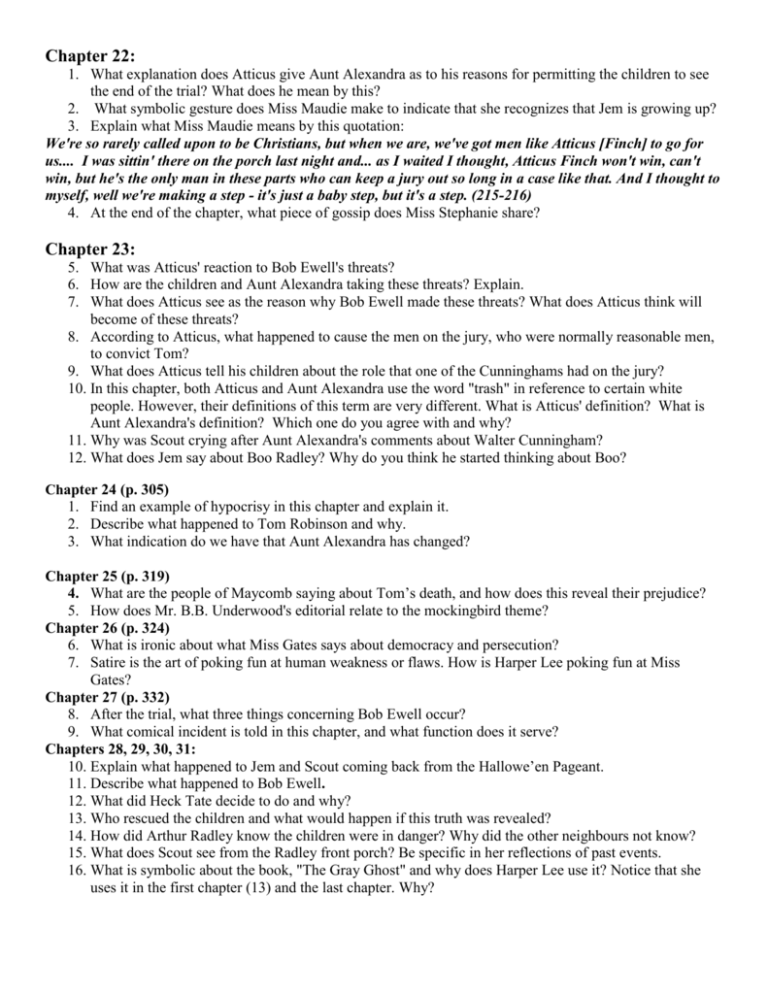
Chapter 22: 1. What explanation does Atticus give Aunt Alexandra as to his reasons for permitting the children to see the end of the trial? What does he mean by this? 2. What symbolic gesture does Miss Maudie make to indicate that she recognizes that Jem is growing up? 3. Explain what Miss Maudie means by this quotation: We're so rarely called upon to be Christians, but when we are, we've got men like Atticus [Finch] to go for us.... I was sittin' there on the porch last night and... as I waited I thought, Atticus Finch won't win, can't win, but he's the only man in these parts who can keep a jury out so long in a case like that. And I thought to myself, well we're making a step - it's just a baby step, but it's a step. (215-216) 4. At the end of the chapter, what piece of gossip does Miss Stephanie share? Chapter 23: 5. What was Atticus' reaction to Bob Ewell's threats? 6. How are the children and Aunt Alexandra taking these threats? Explain. 7. What does Atticus see as the reason why Bob Ewell made these threats? What does Atticus think will become of these threats? 8. According to Atticus, what happened to cause the men on the jury, who were normally reasonable men, to convict Tom? 9. What does Atticus tell his children about the role that one of the Cunninghams had on the jury? 10. In this chapter, both Atticus and Aunt Alexandra use the word "trash" in reference to certain white people. However, their definitions of this term are very different. What is Atticus' definition? What is Aunt Alexandra's definition? Which one do you agree with and why? 11. Why was Scout crying after Aunt Alexandra's comments about Walter Cunningham? 12. What does Jem say about Boo Radley? Why do you think he started thinking about Boo? Chapter 24 (p. 305) 1. Find an example of hypocrisy in this chapter and explain it. 2. Describe what happened to Tom Robinson and why. 3. What indication do we have that Aunt Alexandra has changed? Chapter 25 (p. 319) 4. What are the people of Maycomb saying about Tom’s death, and how does this reveal their prejudice? 5. How does Mr. B.B. Underwood's editorial relate to the mockingbird theme? Chapter 26 (p. 324) 6. What is ironic about what Miss Gates says about democracy and persecution? 7. Satire is the art of poking fun at human weakness or flaws. How is Harper Lee poking fun at Miss Gates? Chapter 27 (p. 332) 8. After the trial, what three things concerning Bob Ewell occur? 9. What comical incident is told in this chapter, and what function does it serve? Chapters 28, 29, 30, 31: 10. Explain what happened to Jem and Scout coming back from the Hallowe’en Pageant. 11. Describe what happened to Bob Ewell. 12. What did Heck Tate decide to do and why? 13. Who rescued the children and what would happen if this truth was revealed? 14. How did Arthur Radley know the children were in danger? Why did the other neighbours not know? 15. What does Scout see from the Radley front porch? Be specific in her reflections of past events. 16. What is symbolic about the book, "The Gray Ghost" and why does Harper Lee use it? Notice that she uses it in the first chapter (13) and the last chapter. Why?

